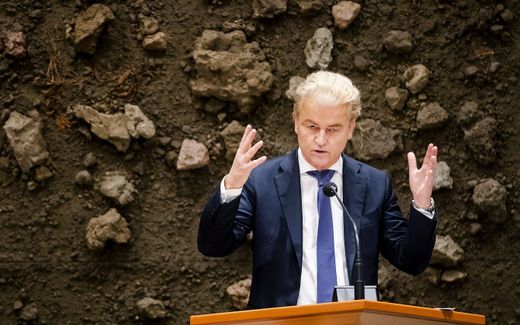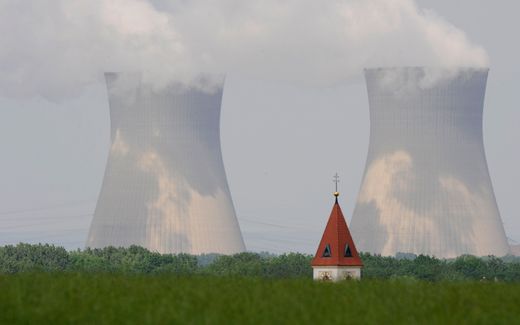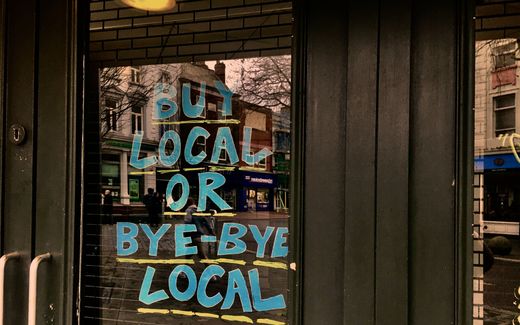The Bible is the solution for Walloon farmers

A dairy farmer holds a model cow emblazoned with a slogan which translates as "Fair Milk" during a demonstration in front of the European Parliament during a protest. Photo AFP Emmanuel Dunand
Opinion
Wallonia has a centre-right government for the first time in years. Will this be beneficial for farmers who have protested against the socialist environmental policies? Not necessarily, Cédric Placentino argues.
The Foire de Libramont (Libramont Fair) is the largest agricultural fair in Europe. It is held every year at the end of July in the Belgian province of Luxembourg. The 2024 edition, which ended on Monday, 29 July, was marked by the major political change that Belgium experienced following the federal and regional elections held a few weeks earlier. The Walloon region, where the fair is held, will experience the greatest change. For the first time since its creation, a centre-right government is in power.
Wallonia is known to be the breeding ground for socialism. However, this ideology has begun to show its limits, particularly for the farmers. The environmentalist agenda adopted by the socialist government in recent years has rendered their activity particularly complicated. But now, the new Walloon government has a Minister of Agriculture, Anne-Catherine Dalcq, who is herself a farmer by trade.
What is more important is the change in philosophy that the Walloon government is adopting. Instead of strengthening the regulations in order to meet the objectives of the Green Deal, the government is opting for a programme focused on freedom because it is the farmer who is primarily responsible for his land.
Neither socialism nor liberalism are ideologies rooted in the Word of God. Despite this, from a Christian point of view, this change in policy remains a step in the right direction. Nevertheless, it will only be in a society firmly anchored in the biblical worldview that farmers will be able to truly prosper. Why is this?
Individual freedom and private property
God created man in his image so that he would have dominion over all the earth (Genesis 1:26). God did not create man in His image so that an elite could dictate their own worldview to the rest of humanity. All men and women are created in the image of God. All have the mandate to rule over all the earth.
After sin entered this world through Adam and Eve (Genesis 3), God made this mandate more concrete through the law that He gave to His people, the nation of Israel. When they entered the Promised Land, God’s plan was to subdivide the land among the twelve tribes of Israel (Numbers 34:17). Each tribe was to receive a portion of the land according to its population. Within these regions, families would be allotted a plot of land which would provide for their needs. According to this plan, each family was therefore responsible for its own land before God, without the interference of the State. In other words, God’s plan for man was individual freedom and private property.
Applying Biblical Principles Today
The biblical principle is, therefore, that each man and woman, or each family, is responsible to God for his private property. However, each person is also responsible for the next generation.
In a society governed by the Biblical worldview, any farmer who understands his mandate before God cannot afford to look for the best way to make a quick profit from his land. If a farmer were to pollute his own land for the sake of quick profit, it would be his own children who would pay the consequences.
The solution to environmental problems is therefore not the accumulation of legislations that complicate the farmer’s task. The solution is indeed private property, with the least possible government interference, whether by taxation or legislation.
Some will retort: “How will the welfare system work if the State no longer levies taxes? Who will take care of the poor and the sick? Who will teach our children?” In Belgium, the answer has been mainly grounded in socialism, where taxation is used to finance the welfare system.
Education
Although the State has the right to tax to finance its own operations, such as the armed forces, the police or the courts of justice, God never anointed the State to provide for healthcare, welfare or education. This is the task of the Church.
Let us be clear: the new Walloon government does not adopt this Biblical vision of the State, but the change in political direction is nevertheless welcome. Although the road to developing a Belgian society centred on Biblical principles is still long, the task is not utopian. But the Church will have to return to the whole Word of God. It must preach not only the need for repentance and faith in Jesus Christ but also what the Bible has to say about all spheres of society. It must also apply Biblical principles for society, in particular by taking back in hand education and the care of the poor and the sick, which are tasks that the State has carried out for more than a century. Only when the biblical principles of private property and freedom are respected can Walloon farmers and other trades prosper.
About the author
Cédric Placentino was born and raised in Belgium by a family of Italian origin. He studied applied sciences at the universities of Mons, Liège (Belgium) and Lisbon (Portugal) and obtained a master's degree in theological studies at the Agricola Theological Seminary in Espoo (Finland). He is chairman of the board of Truth and Transformation Nordic, an organization which aim is to reform the Nordic nations by re-rooting education in its Christian roots. Cédric produces a regular podcast named European Journeys, which aims to recover the Christian roots of Europe. He currently lives in Finland with his wife and their two daughters.
Related Articles










